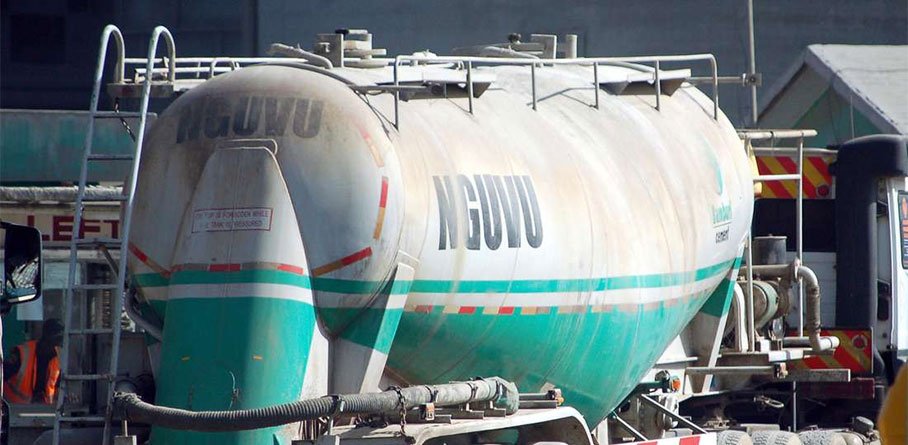A cement truck leaves Bamburi factory in Mombasa. FILE PHOTO | NMG Bamburi Cement #ticker:BAMB more than tripled its net profit in the year ended December, recording the biggest earnings jump among Nairobi Securities Exchange-listed firms and bucking a trend of losses due to the Covid-19 pandemic.
The cement manufacturer reported net earnings of Sh1.1 billion in the review period, up from Sh359 million the year before.
Bamburi’s performance, which is in sharp contrast to losses and profit drops posted by most publicly traded firms in the Covid-19 pandemic era, was helped by a major reduction of costs.
The performance saw the company resume dividend payments, proposing a payout of Sh3 per share.
The dividend will be distributed on July 15 to shareholders on record as of May 16.
The proposed payout represents a dividend yield of 7.8 percent based on yesterday’s closing price of Sh38.05.
Bamburi’s share price had crashed to lows of Sh19 in September last year before rising to the current levels.
“Despite the currency devaluation and decline in revenue, significant cost savings in both variable and fixed costs cushioned the bottom-line,” Bamburi said in a statement.
“Our Uganda subsidiary Hima Cement has contributed a higher turnaround in profitability compared to 2019.”
The company previously reported that Hima Cement had suffered from closure of the Uganda-Rwanda border starting in 2019 when the subsidiary made a net loss of Sh913 million.
Rwanda is the major export market for the Ugandan subsidiary, accounting for 30 percent of its profit and 16 per cent of its sales volumes.Bamburi’s consolidated sales declined 5.1 percent to Sh34.8 billion but costs fell by larger margins, resulting in the profit growth. Total operating costs fell by Sh2.5 billion or seven percent to Sh33.1 billion.The firm also benefited from lower tax rates, finance costs and better management of inventories and collection of debt owed by customers.Bamburi said increased competition had sustained a decline in cement prices, driven by surplus production and capacity.Rivals such as National Cement are among those that have invested billions of shillings to expand their output despite weak growth in demand for the commodity.National Cement, for instance, recently commissioned a new clinker plant in Emali with a daily production capacity of 10,000 tonnes. Clinker is a raw material used in the manufacture of cement.The intensifying price war means the lowest-cost producers are in the best position to navigate the falling prices.The industry’s weak economics has seen major layoffs including at East […]
